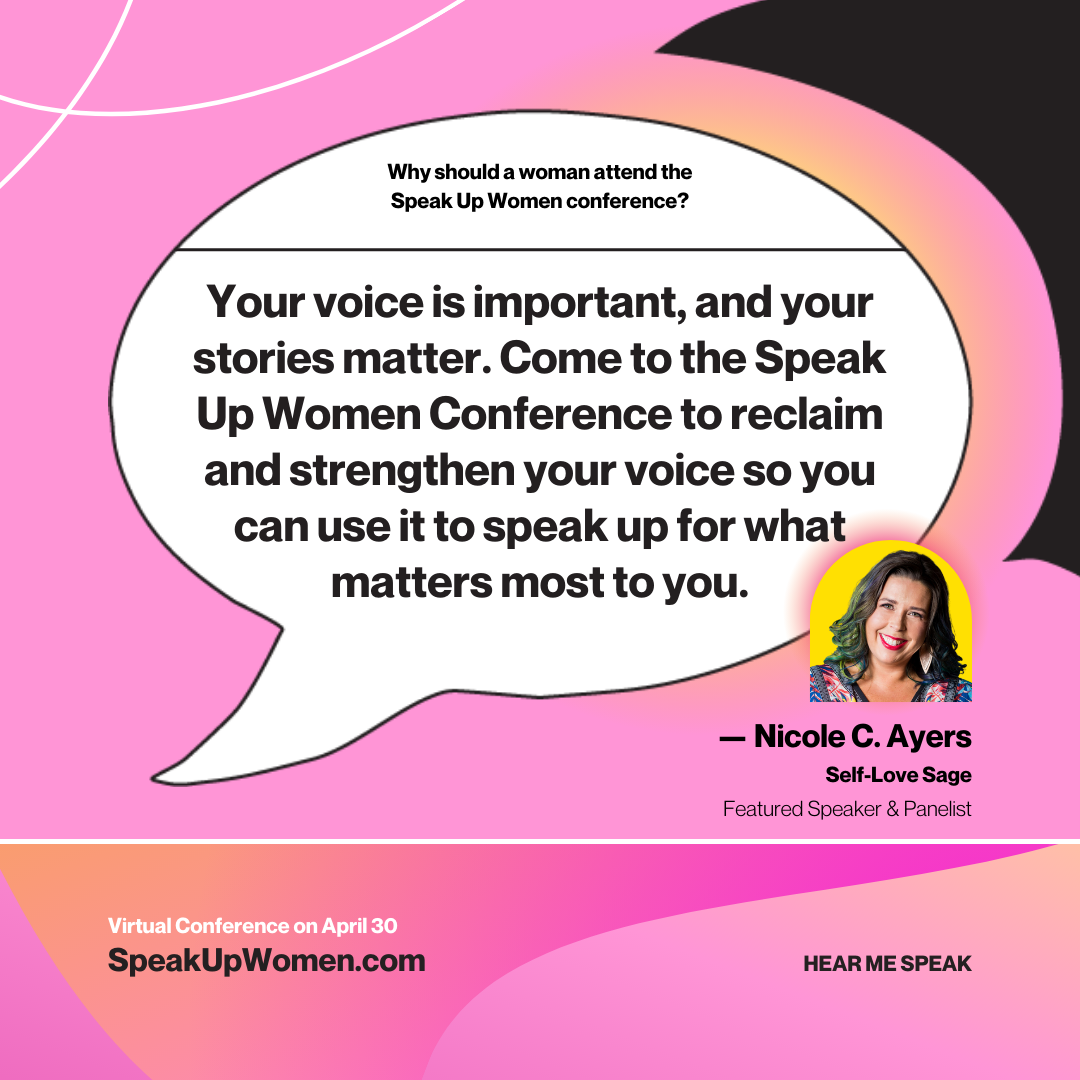Use Your Voice to Heal Generational Wounds

Perfectionism is a legacy that the women in my family have passed down, fencing each of us in like a chain-link prison. You keep your house clean. You smile and say you’re fine — and keep an extra pair of undies in your glove box in case you have a car accident and need clean drawers because you never show your mess. You follow the rules, just so, so no one will realize that you’re not perfect.
Nowhere was this perfectly perfect mindset stronger than in how we talked about our bodies.
I learned very early that there were rules about how women were supposed to look. Everything from the hair on their heads to the polish on their pinky toes categorized a woman as pretty or not pretty.
Things that were pretty: long hair, big boobs, tiny waists, tan skin, and high heels.
Things that were not pretty: wrinkles, tummy rolls, foregoing makeup, stretch marks, and wearing white after Labor Day.
Women were weighed and judged for every aspect of their appearance, and we doled out the harshest criticism to ourselves. We would say mean-girl slurs about our own bodies before anyone else could say them. Even when our bodies weren’t perfect, we could stay in perfectionism’s good graces if we were willing to flagellate ourselves and then get to work whipping our bodies into shape again.
Just How It Was
I grew up nitpicking my body for every perceived flaw, and when I “let myself go,” a southern euphemism for gaining weight, in the eighth grade, I doubled down on the self-directed hate speech. I thought it was normal to constantly be at war with my body.
Every woman I knew, from my mom and grandmother to the celebrities I followed, struggled with her body. They were always looking to slim, smooth, and shrink their bodies.
It was only after my daughters’ miraculous little bodies began to grow that I noticed how badly I talked to myself, how little compassion I offered myself, and how few things about my body I appreciated. When I began to pay attention to my nasty-gram narrator, rather than just handing her the mic every morning, I was horrified. I couldn’t bear to think that my daughters would say such ugly things about themselves.
I realized that, growing up in this world, they will probably struggle to accept their bodies, but I made a promise that it was not going to be because I was teaching them how to hate their bodies.
Peace with My Body?
That impassioned promise felt good to say, but I had no idea how to put it into practice. How could I learn to love a body that I hated in order to break the generational bondage of body perfection for my daughters?
I got curious about how people fall in love. I thought about how couples woo one another, and I remembered the love notes my husband and I used to slip into each other’s lunch boxes. I thought if love notes could build romance between two people, then maybe they could help me cultivate a kinder relationship with my body.
I began a journaling practice to write love notes to my body’s parts. It’s hard to hate something you’re sweet-talking. Every morning, I’d wrestle the mic away from my nasty-gram narrator and pick up a colorful felt-tip pen. I’d spend a few minutes writing a love note to whatever body part wanted attention.
Sometimes my notes were joyful and gracious, like the one I wrote to my taste buds; other times they were gritty and sad, like the one I wrote to my knees.
I committed to writing whatever wanted to come in order to heal my relationship with my body. I gave voice to all the pain my body had been holding onto. I forgave myself and offered grace for all the times that I’d expected my body to match someone else’s expectation of perfection.
A Legacy of Body Acceptance
Allowing my written voice to alchemize my pain into magical, healing acceptance of my body, just as she is (she being my body), gave me the courage to carve a new path forward for myself and my daughters. I speak to, and about, myself with kindness, respect, and love. I offer compassion when my body needs it. I choose to honor my body and take the best care of her that I can.
The women in my family no longer have to contort their bodies into tiny boxes of perfection. Healing my own relationship with my body gives them permission to do the same when I give voice to my experiences. That healing ripples out beyond our family too.
I’m choosing to create a legacy of body acceptance, rather than body shame, for all women.
To learn more about creating your own legacy of body acceptance, watch Nicole C. Ayers’s TEDx talk titled “Create a Legacy of Body Acceptance.”

